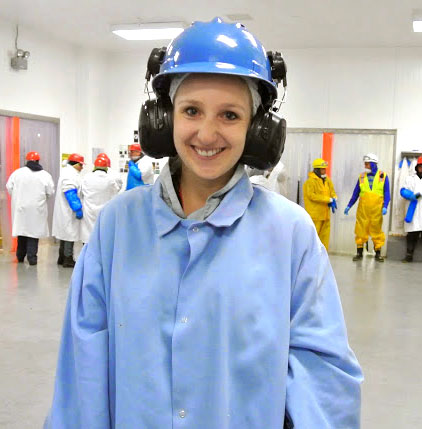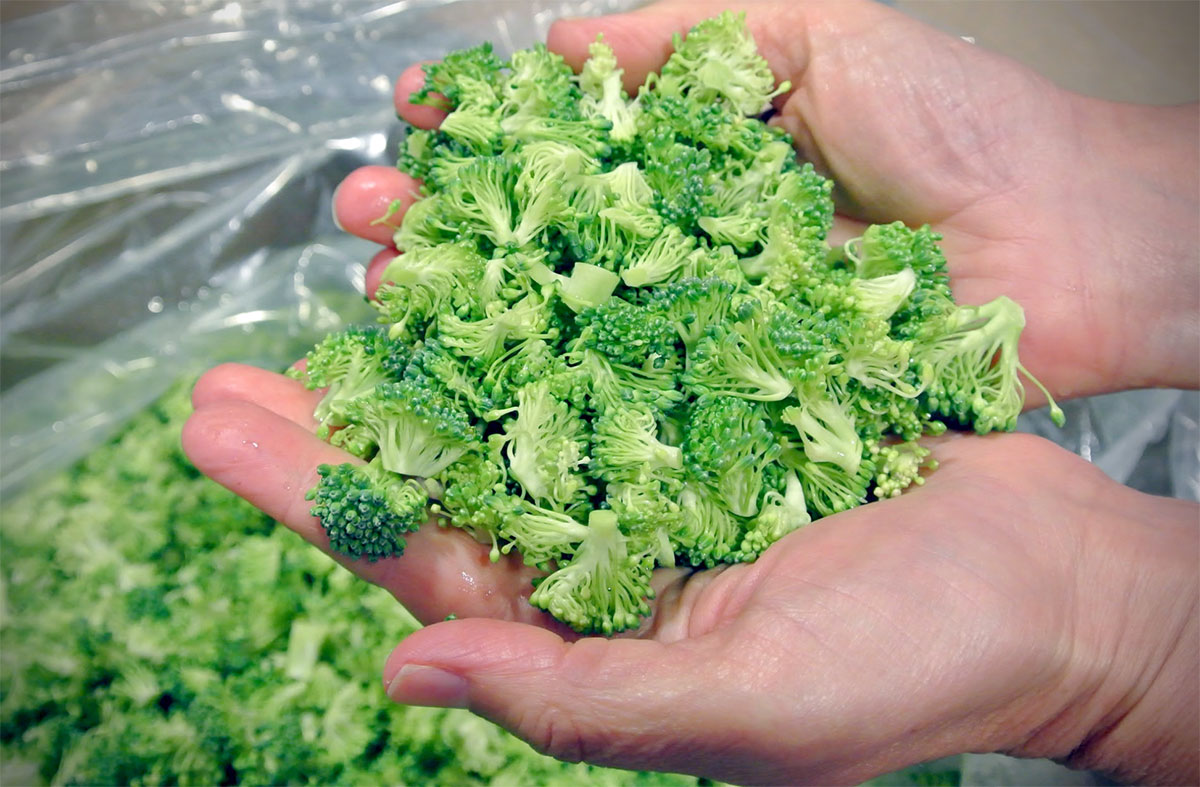
Compass Group USA & Bon Appétit Launch Imperfectly Delicious Produce Program
Innovative new purchasing system fights food waste and helps farmers
CHARLOTTE, NC (March 19, 2015) — Pity the unpretty potato and the twisted turnip. Millions of tons of perfectly edible, wholesome fruits and vegetables get wasted every year because their size, shape, or color don’t exactly match the food industry’s stringent cosmetic standards. Some are left in the fields to rot or get disked under, or are rejected later during processing. But when you’re slicing, dicing, chopping, and cooking, flavor matters a lot more than looks. To fight food waste and support local farmers, Compass Group USA, the nation’s largest food service company serving 8 million meals a day, and Bon Appétit Management Company, its award-winning subsidiary, have together launched a groundbreaking program, Imperfectly Delicious Produce, to rescue and incorporate these fruits and vegetables into recipes served in their thousands of kitchens.
Learn more about Imperfectly Delicious:
• Wall Street Journal
• San Francisco
Chronicle
• NPR’s The Salt blog
• Bloomberg Business
[with video]
Starting in May 2014, the two companies successfully piloted the program at locations in California, Pennsylvania, and Washington State, and are now rolling it out in Oregon and Washington, DC, with plans to expand it to the rest of the country. More than 10,000 pounds of 31 varieties of fruits and vegetables, from misshapen organic carrots and leeks to loose kale leaves, were recovered during just the first few months of the pilot program.
“It feels really good to know that all this produce that we’ve been pulling off to the side and sending to the compost pile has a home now,” says Tim Terpstra, of 250–acre Ralph’s Greenhouse in Mt. Vernon, WA, which has supplied crooked carrots, fingerling potatoes, and undersized leeks to Bon Appétit’s Taste Restaurant at the Seattle Art Museum and various Seattle-area universities and corporate cafés operated by Bon Appétit and Compass subsidiary Eurest through the Imperfectly Delicious program. (Watch a short video about the program.)
Bon Appétit has long fought food waste as part of its Low Carbon Diet initiative — decomposing food in landfills emits methane, a potent greenhouse gas — and supported local farms through its Farm to Fork and other targeted purchasing programs. Compass Group USA is likewise committed to driving new culinary approaches for healthy, delicious and sustainable food.

Bon Appétit Waste Specialist Claire Cummings at a California processing facility, looking at products that could be rescued for the Imperfectly Delicious program.
“When I visited a large farm during harvest, I couldn’t believe how much produce was being left in the fields,” said Bon Appétit CEO Fedele Bauccio. “I asked our team to fix that. Too much energy and work goes into growing food to waste it.”
“We’re pleased to be able to take this program all across the country,” said Christine Seitz, Vice President of Culinary for Compass Group USA Business Excellence. “Creating a new supply chain for a product such as inconsistently sized organic Yukon gold potatoes that no one previously wanted isn’t easy, but it pays dividends in all sorts of ways.”
Rescuing crooked carrots is not as simple as telling farmers, “Send us your ugly veg!” To launch Imperfectly Delicious, Seitz and Bon Appétit Waste Specialist Claire Cummings donned hairnets to visit the fields and processing facilities of big and small growers (including Church Brothers in California and Ralph’s Greenhouse in Washington). They stopped to nibble on Cascadia greens (the inner leaves of romaine) and loose broccoli florets and ask about their fate. They visited aggregators such as LA & SF Specialty in Los Angeles and San Francisco and Charlie’s Produce in Seattle to discuss how to hack their existing ordering platforms in order to add a section for limited, time-sensitive purchases of imperfect produce. They worked out a common lexicon that farmers and distributors would use to catalog the flaws, so that the chefs would know exactly what they were getting.

When heads of broccoli are broken into retail-sized bags, these small florets often fall off and are thrown away.
Participating Bon Appétit and Compass chefs are enthusiastic about Imperfectly Delicious, but rolling out the program takes time. Each regional supply chain has its own quirks, and no large-scale system exists for rescuing produce. So each new region requires engaging its distributors and their growers, learning what they have available, and figuring out how to plug into their specific existing processes and ordering systems. But with every area that joins the program, the two companies move closer to their goal of no vegetable left behind.
About Bon Appétit Management Company
Bon Appétit Management Company is an on-site restaurant company offering full food-service management to corporations, universities, and specialty venues. Based in Palo Alto, CA, Bon Appétit has more than 500 cafés in 33 states. Bon Appétit food is cooked from scratch, including sauces, stocks, and soups. A pioneer in environmentally sound sourcing policies, Bon Appétit has developed programs addressing local purchasing, the overuse of antibiotics, sustainable seafood, the food and climate change connection, humanely raised meat and eggs, and farmworker welfare. It has received numerous awards for its work, from organizations including the James Beard Foundation, Chefs Collaborative, Natural Resources Defense Council, Seafood Choices Alliance, The Humane Society of the United States, and Food Alliance.
Media Contact (high-res images available): Bonnie Powell, 650.621.0871, [email protected]
About Compass Group USA
Based in Charlotte NC, Compass Group North America is the leading foodservice management and support services company with $13.6 billion (£8.2 billion) in revenues in 2014. With over 500,000 associates worldwide, its parent company, UK-based Compass Group PLC had revenues of £17.1 billion in the fiscal year ending September 30, 2014.
Media Contact: Veronica Ospina, 1-704-328-4291, [email protected]